Canadian Teens Told Us Why They’re Striking Over Climate Change
Credit to Author: Hilary Beaumont| Date: Thu, 02 May 2019 17:39:46 +0000
This Friday, teens are walking out of their high school classrooms across the country to send a message to Canada’s federal and provincial governments that they need to recognize we’re in a climate emergency, and take urgent action.
Teens from coast to coast tell VICE they’re already experiencing forest fires that cloak the sky in smoke, rising sea levels dangerously close to key highways, droughts leading to crop shortages, and thawing permafrost in the north that threatens the foundations of their homes.
They’re part of a worldwide movement.
In August 2018, Swedish teenager Gretta Thunberg led a school strike to demand government action in response to heat waves and wildfires. Her actions triggered similar school strikes worldwide—in the Americas, Africa, Europe, Asia, Australia, and New Zealand.
The school strikes have coincided with a wave of protests in the UK led by a group called Extinction Rebellion that included people blocking traffic with yoga and sitting on the roofs of trains. After they staged acts of civil disobedience in November and again this month, the UK Parliament finally passed a motion to declare a climate emergency.
In Canada, high school students are banding together and learning from university students, who led protests of tens of thousands of people in Montreal in March. Using a Slack channel, they’ve organized school strikes this Friday in 64 different communities across Canada.
We spoke with students from seven of those communities to find out why they’re striking and what they’re demanding from Canada.
***
Rebecca Hamilton, Vancouver
Age 16, Grade 11
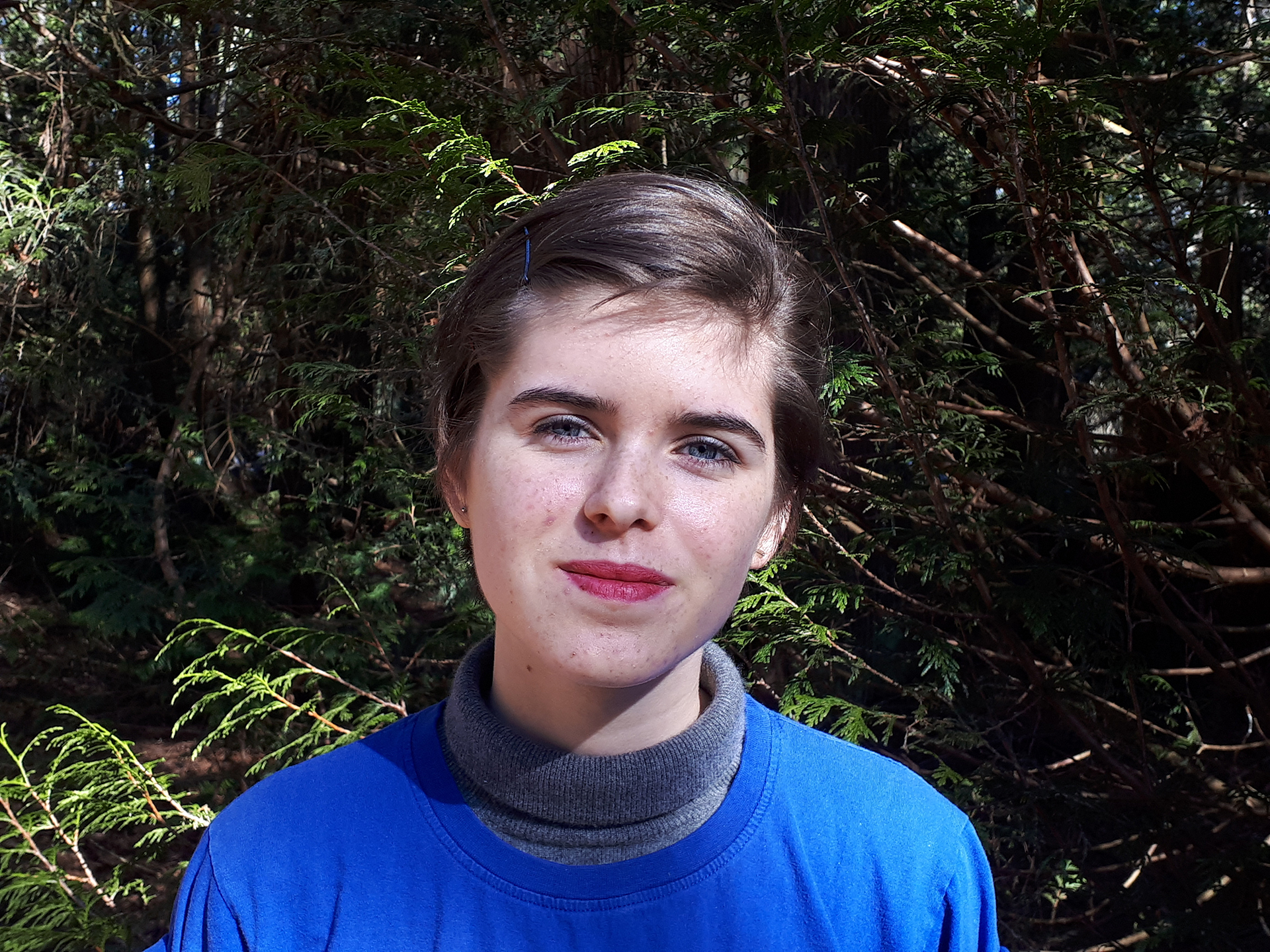
Why are you walking out of school this Friday?
I’m walking out of school because we’re in a crisis right now, we’re in an emergency and no one’s acting like it. As young people, it’s really confusing to know the science but see no action happening. I’m looking at cars driving by. Everyone’s acting like we can continue as usual, as if we’re not in a crisis.
Have you been directly affected by climate change?
Here in BC, we now have wildfire season in the summer, which is very disruptive. For weeks on end the sky is just completely grey and it feels like you’re living in a confining bubble of ash. You can’t go outside for a few weeks. But I also know I’m privileged, and while the climate crisis will make my life harder, it will never threaten my life the way it will for people in other parts of the world.
What do you want Canada to do about climate change?
I want Canada to have a plan to meet emissions reductions targets that are in line with science. Right now our federal emission reductions targets aren’t enough to keep us beneath 1.5 degrees Celsius of warming, according to the IPCC scientists, and that needs to change. We need a clear plan to meet those targets, too. Canada is not acting boldly enough.
What message do you want to send to politicians?
It’s not radical to demand climate action — it’s literally the most rational thing we could be doing. I want politicians to know that you can’t be a leader unless you’re taking action on this issue.
You can’t vote in the fall election because you’re 16, but what message do you want to send to voters?
I want to tell them to only vote for the party that has a clear climate action plan. That should be one of your top priorities when you’re voting—vote on climate! Remember that you’re voting on the future of your children.
Fletcher Dare, Inuvik
Age 14, Grade 9
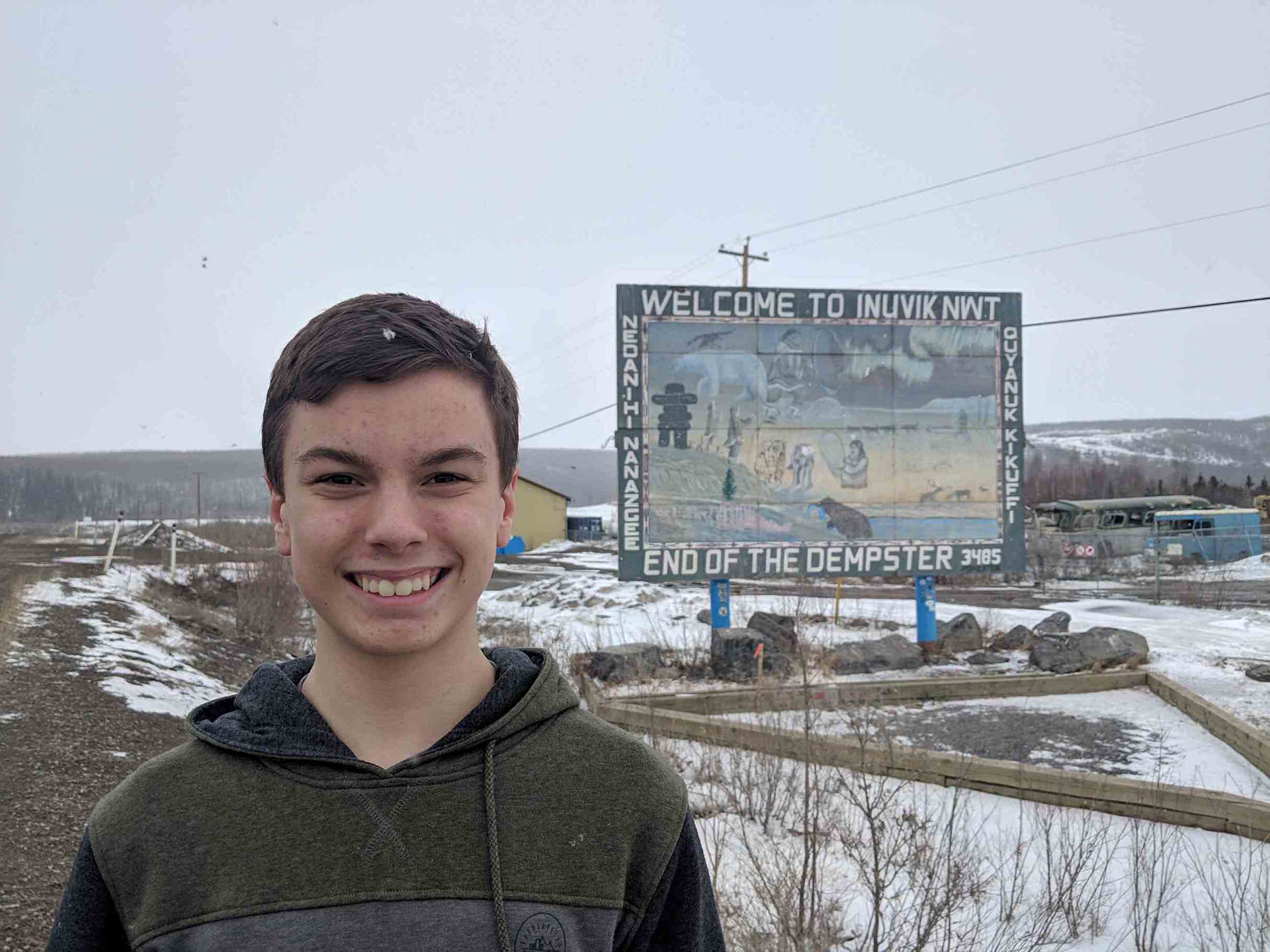
What do you want the Canadian government to do about climate change?
I want the government to find a way to reduce emissions so we can stop the effects of climate change. In the north, the permafrost is thawing, which releases methane, the worst of all the greenhouse gases. All our houses are built on stilts or poles that go down into the permafrost, and our sewage treatment plants and roads are also built on top of the permafrost, so if it thaws, that creates a lot of damage.
What other changes are you seeing in the north?
The recent Canadian climate report says the area from Old Crow to Eagle Plains in the Yukon, a six hour drive from here in Inuvik, that’s one of the places that’s warming the most, with three degrees Celsius of warming since the 1950s. That’s a massive amount of warming compared to the rest of Canada. And even Canada is warming at twice the rate of the rest of the world. And the north itself is warming at three times the rate of the rest of the world.
A couple years ago, I went on a school trip to Tuktoyaktuk, a hamlet in the Northwest Territories. That town has a lot of pingos around it (hills of ice covered in earth). I went sledding down one of those hills on a crazy carpet with friends. But I read that climate change will melt the ice under the pingos, making them disappear.
Tuktoyaktuk is also facing erosion. It’s falling into the ocean and will need to be relocated. Artifacts in the ground are washing away. There are whaling camps that are slipping into the ocean.
You can’t vote in the next election, but what message do you want to send to voters?
I want to encourage them to take a stand for climate change action, and protect the planet for future generations.
Julia Sampson, Halifax
Age 17, Grade 11
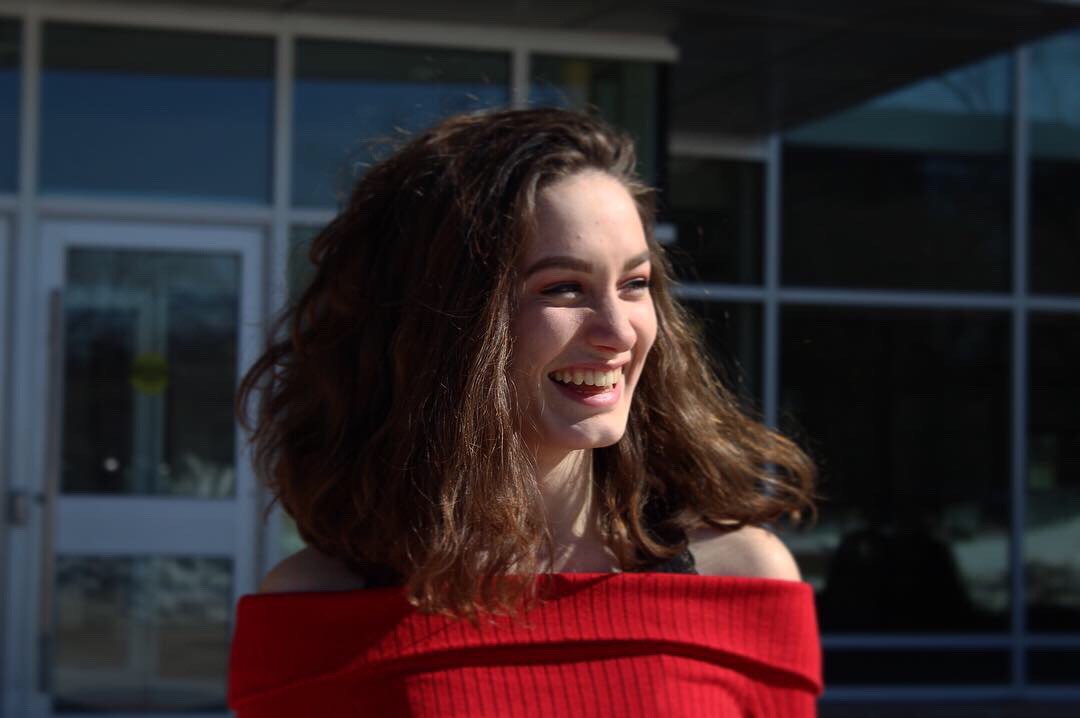
Why are you walking out of school this Friday?
It’s important to let our government know we need to see change, especially on the east coast. Nova Scotia could have a lot of problems from the effects of climate change. We’re one bad storm away from being cut off from mainland Canada. It was originally estimated it could happen in the next 20 years, but if the right storm comes and the right tide, it would put water over the dykes and flood the land and highways that connect Nova Scotia to New Brunswick. People don’t think about how much climate change is already affecting us.
What do you want Canada to do about climate change?
I want them to have a plan and budget that’s attainable, that will bring us green energy, and that takes workers and Indigenous and marginalized communities into account. I want a sustainable planet for me to live on, and my children and grandchildren.
We’re not on track to meet the Paris Agreement. That’s a promise Canada made with other countries to lower our carbon emissions, and right now that’s not happening. That really worries me because it makes me wonder if I can trust them to follow through on their climate plans.
Are you going to vote in the fall election?
I won’t turn 18 before then, so protesting is the only thing I can do right now. As the organizer of the Halifax strike, it’s inspiring to see so many people working toward this movement. But we’re not the ones who can solve this—the government has to solve it.
Leilani Rocha, Toronto,
Age 18, Grade 12
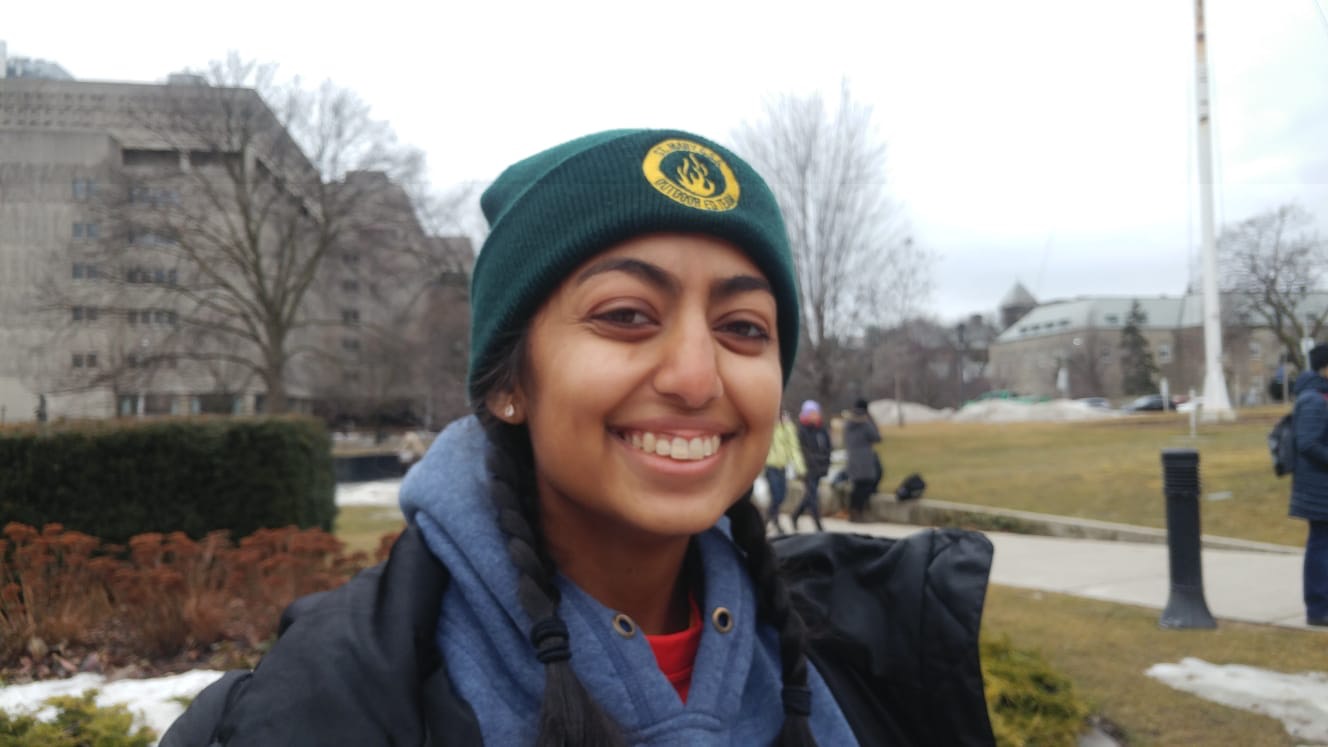
Why are you walking out of school this Friday?
I want to be a part of this movement to open people’s eyes and show that students want change. Walking out of school makes a statement and shows adults and government that we’re serious.
It’s mainly people in third world countries who are affected by the climate crisis. I recently went on vacation to China and I saw the air pollution outside. It’s hard for people to realize it’s a huge issue that’s affecting people and animals already. The floods in Canada, and sea level rise — it’s getting worse and worse. It’s concerning that in Canada we support oil production. I’m concerned it’s not being treated as the emergency that it is.
What message do you want to send to politicians?
I like Gretta Thunberg’s message: “I don’t want you to hope, I want you to panic.” I don’t want people to try—I want people to listen and act. We don’t have time to wait around.
Are you voting in the fall election?
Yes. I will vote on climate change. I’m going to vote for my future and the future of Canada. I want party leaders to talk more about our climate emissions, and make investments in public transit and sustainable transportation. We need to reduce the number of cars on the road. Carbon reductions should also come from industry. Making these plans now will pay off in the end.
Sara Montpetit, Montreal
Age 17, in her last year of high school
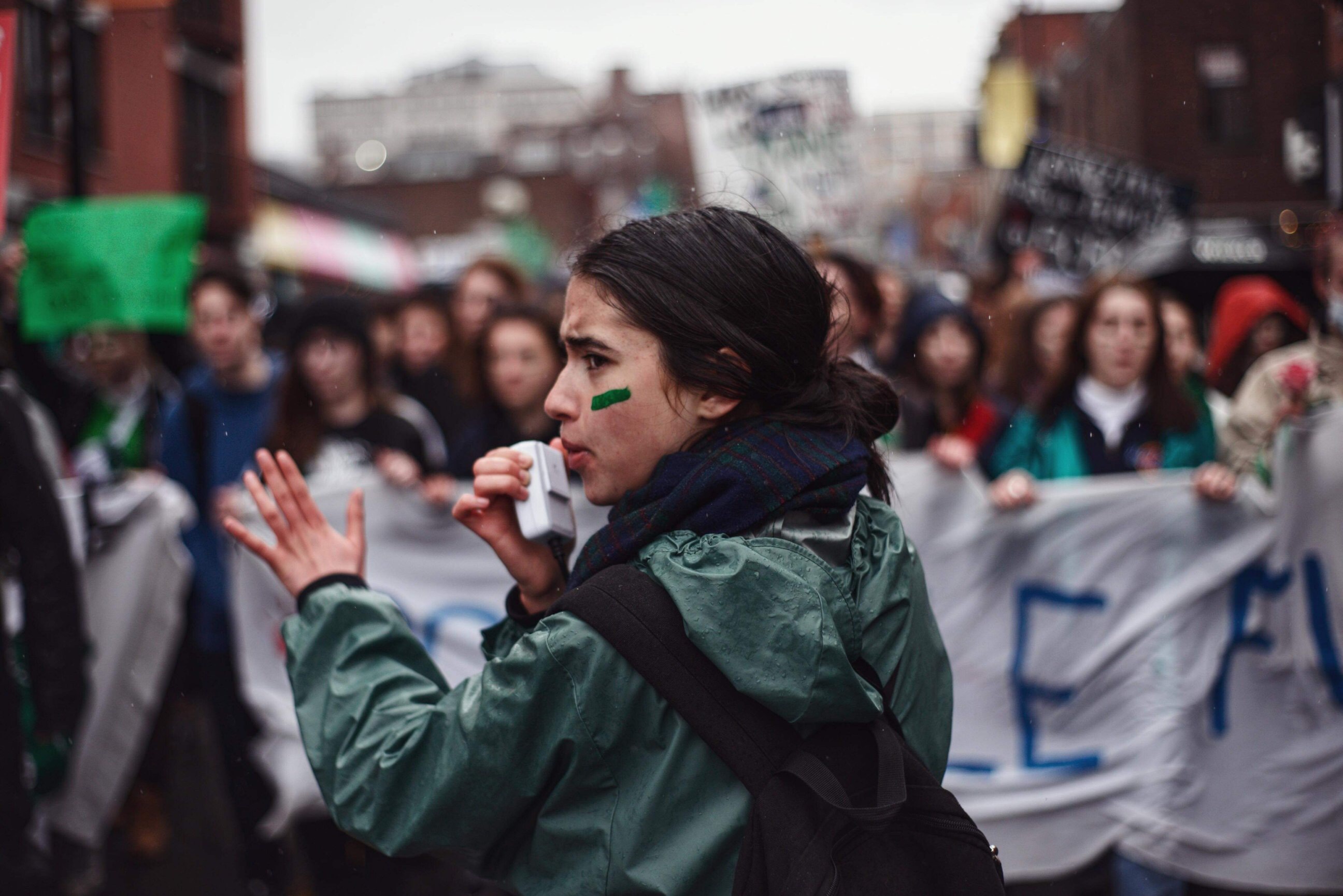
What do you want Canada to do about climate change?
We have three demands. First, we want Canada to follow the Paris Agreement, reducing our greenhouse gases by 50 percent by 2030, and 100 percent by 2050, and limit global warming to 1.5 degrees Celsius. Second, we want a national education program for all students to learn about climate change and how we can be more sustainable. Third, we want the government to stop financing the fossil fuel industry.
What message do you want to send politicians?
We want them to follow the youth demands, and listen to scientists. Because we demand everything that scientists are saying. We’re just saying, listen there’s a problem, and it’s not the youth who can solve this problem. It’s elected leaders and voters who can do something about this, so we need to put all our energy together to fix this problem and make a big change. It’s the adults who can vote, so it’s their duty to vote for action on climate change. It’s their obligation. It’s their fault we are in this situation, but it’s not too late to act.
Are you planning to vote in the fall election?
Yes, I’m turning 18 before the election. I will vote for the party that puts forward a national, realistic plan to fix the crisis, above and beyond the Paris Agreement. We’re not the majority of the vote, so I hope that older generations will vote on the long view and not on short-term objectives.
Ethan Elliot, Stratford
Age 17, Grade 12
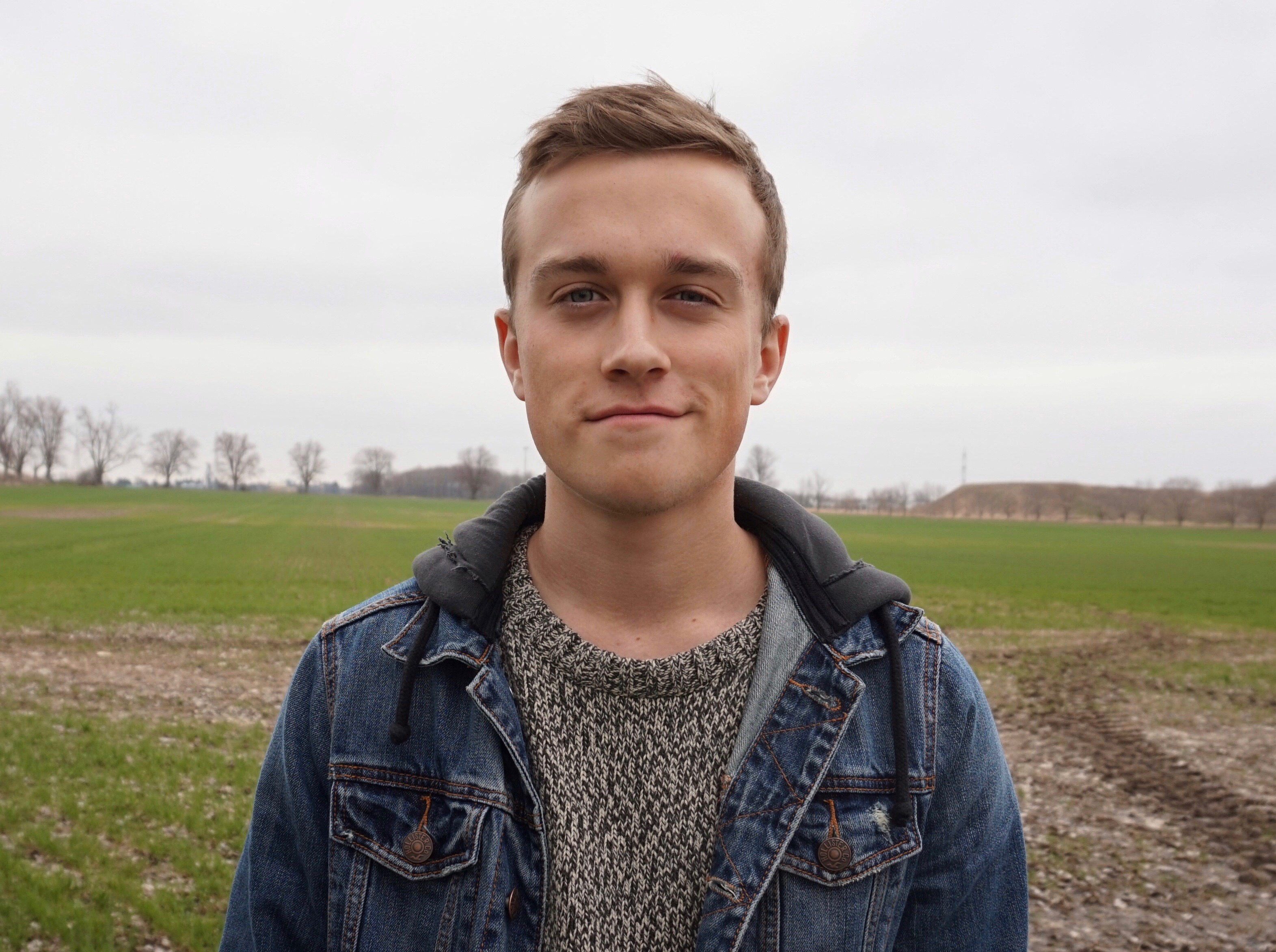
Why are you walking out of school this Friday?
I’m walking out of school because we don’t have a second planet. We have this opportunity to take substantial action on climate change before it becomes an existential threat. If we don’t do anything, we’re screwed. It’s important that we rise up as youth because we have the most to lose.
In the future, we’ll have severe water and food shortages, especially where I live. Stratford is an agricultural community and we’re going to have severe crop reduction and droughts, and soil quality will go down. In the climate discussion, we often focus on cities and forget about small towns. Our rural economy comes from tourism and agriculture, and if we don’t have those, our economy is literally going to be destroyed. It’s a question of the survival of our community at this point.
What do you want Canada to do about climate change?
It’s about cutting emissions in half by 2030. We need a comprehensive plan to stop climate change from happening. We don’t have a Plan B. This is the only chance we’re going to get. The plan has to engage everyone. And on top of that, we want the government to declare a state of emergency on climate. Right now it’s business as usual, and we see Justin Trudeau’s plan and we know it will bring us above three degrees Celsius of warming. We have to recognize the fact that we need to do more and not hide behind partisan ads and miscommunication with the public.
Madison Prairie, Edmonton
Age 18, Grade 12

What do you want Canada to do about climate change?
Recently other governments have declared a climate emergency. The Canadian federal and provincial governments should do the same. We need to start programs to stop investing in fossil fuels. Alberta premier Jason Kenney has spoken about bringing back coal, which was being phased out by Rachel Notley. He’s going to dig us deeper into a hole of climate debt that will lead us to irreversible climate catastrophe.
Are you planning to vote in the fall federal election?
Yes. Climate change is one of the top priorities that I will vote on, as well as environmental policy, education and health care. One of my biggest goals in life is that I want to be a mom and have kids someday. But I’m afraid that if we don’t move away from carbon catastrophe and there is no solution, I don’t think that I will have children. It saddens me to think that something I find so important might not be a reality because of what’s going on. I would never bring a child into this world if there is no future and the climate is no longer viable.
Sign up for the VICE Canada Newsletter to get the best of VICE Canada delivered to your inbox.
Follow Hilary Beaumont on Twitter.